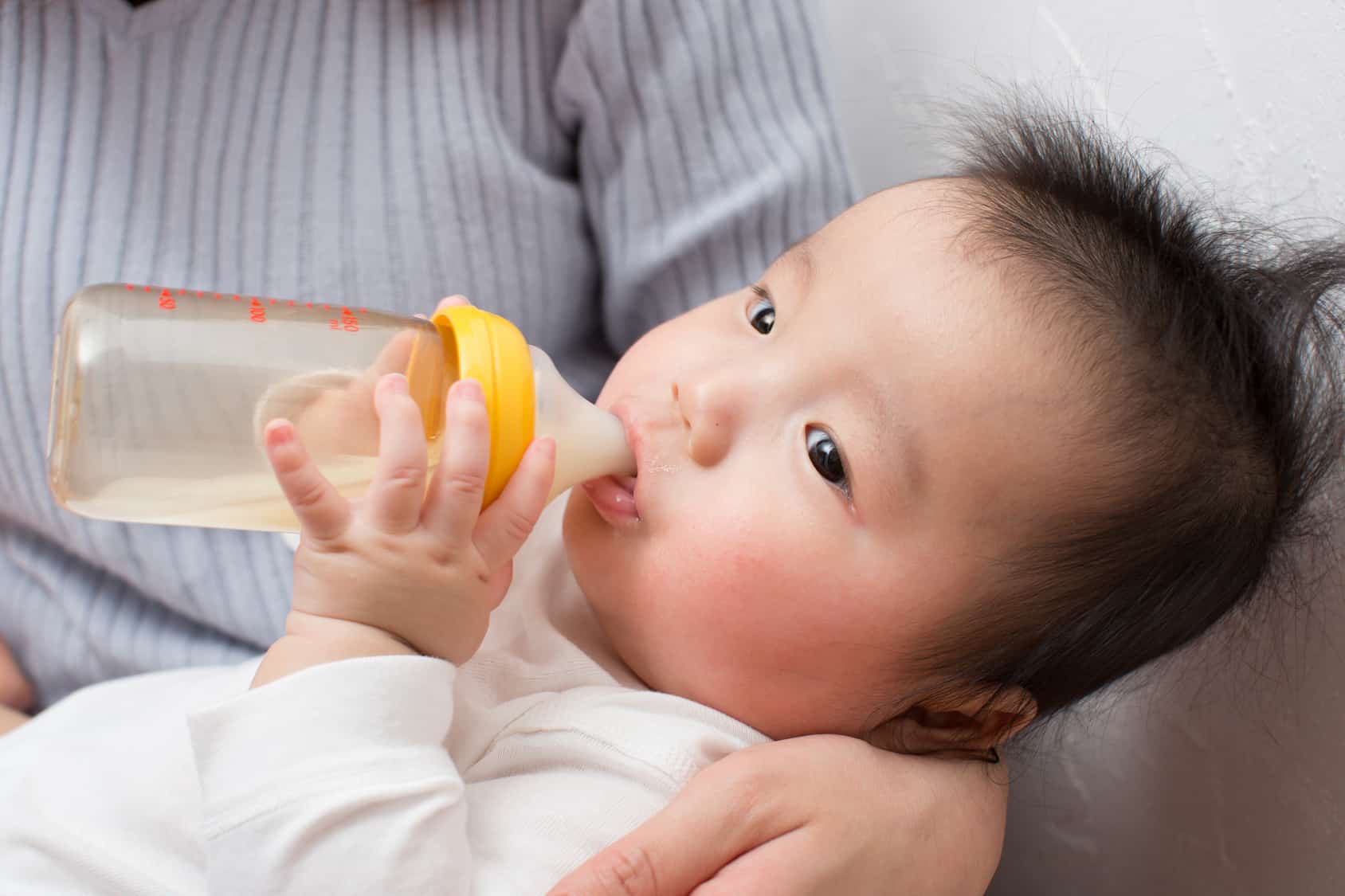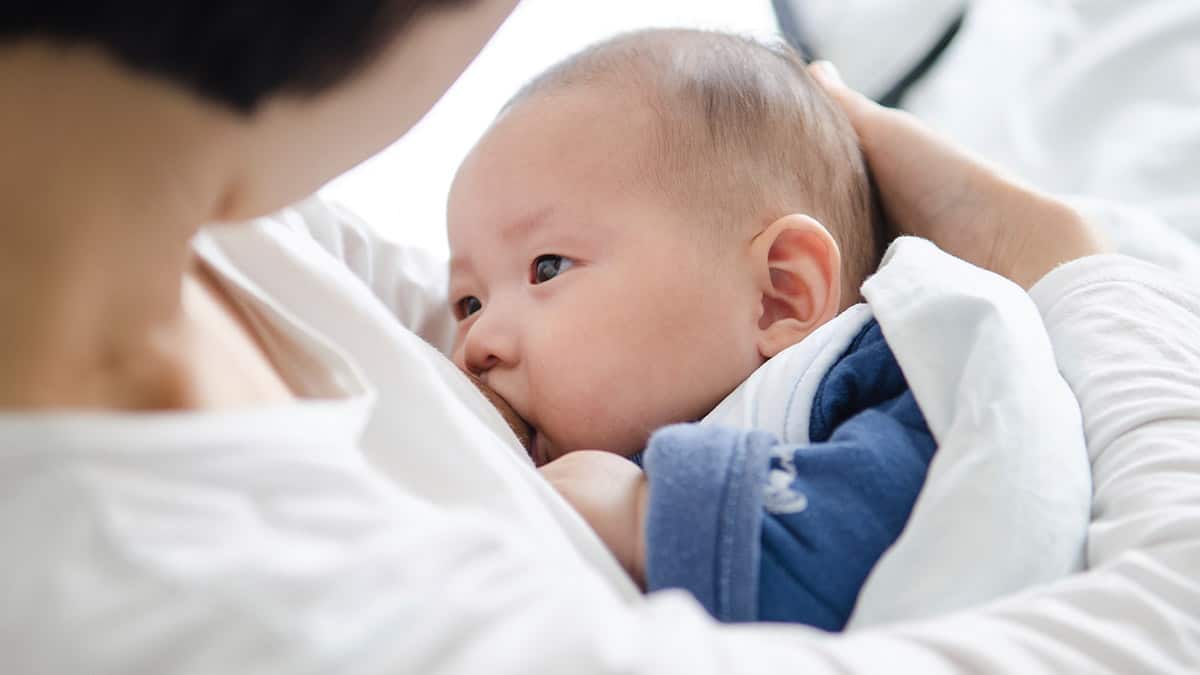Contents:
- Medical Video: Tummy time exercises for your baby
- Development of a 3-week-old baby
- How is the baby developing at the age of the week?
- What should I do with my baby?
- Health for babies aged 3 weeks
- What do I need to discuss with the doctor?
- What should I know?
- Which must be considered
- What do you need to watch out for when the baby is 3 weeks old?
Medical Video: Tummy time exercises for your baby
Development of a 3-week-old baby
How is the baby developing at the age of the week?
Your baby is now 3 weeks old. In the development period of the baby 3 weeks, generally your baby can see objects within 20-35 cm. This is also an estimate of the distance between the baby's eyes and the mother's eyes while breastfeeding.
The fact is there is a need to know, new age around the age of this week, babies are more likely to notice the face than objects.
You can encourage your baby to practice focusing by seeing your baby straight while breastfeeding. At the same time, move your head slowly from one side to the other and see if his eyes see you. This helps train the eye muscles to track and follow objects.
Frequently making eye contact while communicating with your child also trains the alignment of his eyes, while strengthening the inner bond. In the development period of the baby 3 weeks, generally the little one can move his arms and legs freely.
What should I do with my baby?
The only way a baby communicates is by crying, but you can communicate with him through your voice and touch. He can now recognize your voice and choose your voice among other people's voices.
Your baby may like to be held, stroked, kissed, caressed, massaged, and carried. He might even make a "ah" sound when he hears your voice or looks at your face, and he will be happy to find you in a crowd.
Health for babies aged 3 weeks
What do I need to discuss with the doctor?
In the development period of the baby 3 weeks, generally you do not need to take him to the doctor if your child does not experience certain problems or symptoms. However, you remain vigilant and pay attention to the following:
- Keep an eye on baby's urine and feces to be able to detect any health problems in the baby
- If there is a problem with blood clots, your doctor may suggest an injection of vitamin K to get rid of the blockage.
What should I know?
As a mother, it is important to know the signs sudden death syndrome in infants (sudden infant death syndrome / SIDS) and how to prevent it. SIDS is a condition that occurs when the baby suddenly dies in sleep. Babies under 1 year are more at risk of experiencing this serious condition.
Although SIDS is the leading cause of death for infants aged between 1 month and 1 year, this condition is still rare. There are no known real causes of SIDS but there are several factors that are thought to be the following triggers:
- Parents or caregivers who smoke
- Babies lie face down on the mat
- Premature birth
- Below average weight
- Sleep on a mattress or a surface that is too soft
- Feeling hot during sleep.
To prevent the risk of SIDS in infants, you must:
- Always sleep the baby on his back. Research has shown that SIDS cases are reduced by 50 percent if the baby sleeps on his back. It is not recommended to put the baby to sleep sideways. Empty the baby cot from soft pillows and toys that can unexpectedly cover the baby's mouth and block his breathing. Keep the baby's head closed. Keep the room temperature cool around 24 degrees Celsius.
- Don't put too much clothes on the baby at bedtime. Some experts forbid you to sleep with a baby on your bed for the first few months because of high risk. But other experts believe that sharing beds makes parents respond more quickly to changes in breathing or baby movements. If you sleep with your baby, make sure the mattress you are using is not too soft. Babies still have to sleep on their back even though they sleep in your bed.
- Never smoke around a baby and keep him away from smokers. It is possible that breastfeeding and providing pacifiers for babies during sleep might reduce the risk of SIDS, but need more research to confirm it.
Which must be considered
What do you need to watch out for when the baby is 3 weeks old?
In the development period of this 3-week baby, parents may feel depressed because the baby is always crying. But crying is the baby's main method of communication with you. Don't despair or worry, try to find out why your baby is crying and find a solution.
However, if he cries more than 3 hours a day and lasts for 3 weeks, he may experience colic. Colic is when the baby cries loudly and can't be controlled, even though the baby's condition is actually healthy and the baby is full.
But the good news is that colic doesn't last too long. As many as 60 percent of babies can heal on their own in 3 months, and 90 percent will improve after a 4-month-old baby.
Tell your doctor if you feel there are abnormal symptoms or want to ask about something. The doctor will provide the best solution and care for your baby.
How is your baby developing the next week?












